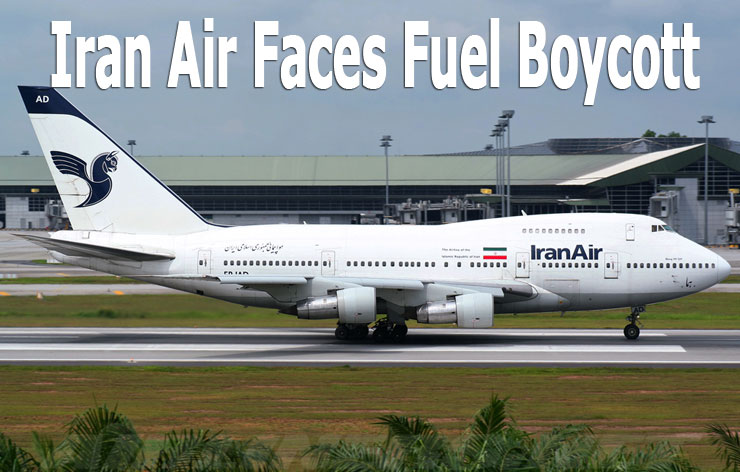 Rare
to see Iran Air B747SP, which first flew in Pan American World Airways
livery across the Pacific JFK/TYO, captured here in Singapore. Rare
to see Iran Air B747SP, which first flew in Pan American World Airways
livery across the Pacific JFK/TYO, captured here in Singapore.
Flight IR723 from Hamburg to Tehran last
Sunday seems to be the first in Europe hit by a boycott of a major energy
provider. Airport sources say multinational BP refused filling up the
tanks of Iran Air’s Boeing B747SP with kerosene.
To avoid getting stranded in Germany, the
aircraft took off to Vienna Schwechat airport where the tanks were refilled,
enabling the craft to fly the remaining five hours back to the Iranian
capital.
Similarly, two days later an Airbus A300-600
was boycotted by BP at Hamburg Airport.
Again, the passenger plane stopped over
in Vienna to get the necessary fuel on its way back to Tehran.
Boycotts of Iranian carriers by multinational
energy suppliers, as now witnessed in Hamburg, seem to happen elsewhere
and could become habitual.
As Middle East papers report, BP and Shell
have begun to stop providing fuel to Iranian airlines at airports in the
UAE, mainly Dubai and Abu Dhabi.
However, it is unclear at this point if
this ban includes all carriers landing there, namely Iran Air, Mahan Air,
Caspian Airlines, Taban Air, Fars Air Qeshm, Iran Aseman Airlines, Aria
Air and Kish Air, or if only flag carrier Iran Air is blacklisted by the
energy giants.
When asked, UAE airport officials commented
they have not inititated any boycott or reduction of supply.
So said the German government, which informed
the media that refusing delivery of kerosene to Iran Air is the sole decision
of a private enterprise.
Analysts value the partial boycott by some
multinational oil companies as a first reaction to the U.N. council’s
recent sanctions over Iran’s nuclear program, which is suspected
to be aimed at developing atomic weapons.
The ban, initiated by Washington with support
of most European governments and fully supported by China and Russia,
blacklists dozens of Iranian military, industrial, logistics and transport
firms.
In a comment, Iran’s ruler, Mahmoud
Ahmadinejad spoke of a “valueless” U.N. resolution that should
be thrown “in the garbage can like a used handkerchief.”
Heiner Siegmund/Flossie
|



